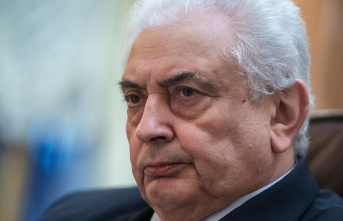The United States and the European Union are approaching each other in the dispute over US subsidies for green technologies. Both sides wanted to negotiate an agreement on minerals for car batteries "immediately", announced US President Joe Biden and Commission President Ursula von der Leyen on Friday (local time) after a meeting in the White House.
This should also make electric vehicles from Europe eligible for US tax credits, so that European manufacturers are not disadvantaged. There have recently been particularly large differences. Criticism came from the EU Parliament that it was only a minimal approximation.
The meeting also dealt with the war in Ukraine, but the subsidy dispute was said to be the focus. The background is a US law that provides for billions in investments in climate protection and subsidies for US industry. In the EU - also in Germany - this triggered great concerns about competitive disadvantages. The problem from a European perspective with the so-called Inflation Reduction Act (IRA): Many subsidies and tax credits are linked to the fact that profiting companies use US products or produce them themselves in the USA.
Agreement on electric car subsidies
A stumbling block for Europeans is the planned tax break for buyers of electric vehicles. The tax benefits are subject to requirements. These include requiring a certain percentage of battery parts to come from the United States or a country with which the United States has a free trade agreement, and this percentage will increase in the coming years. EU manufacturers therefore fear major disadvantages. The United States has free trade agreements with Canada and Mexico, but not with the EU.
The aim now is to conclude an agreement with Brussels for the area of critical minerals. The term free trade agreement is not defined in the US climate law. In the joint communication from the EU Commission and the White House, there is now talk of a "targeted agreement". Von der Leyen stressed that it was agreed to work to ensure that critical raw materials extracted in the EU would have the same access to the US market as if they had been extracted there.
Better arrangements in the future
Biden and von der Leyen also emphasized that their major subsidy programs should be better coordinated. With a green industrial program, Brussels also wants to expand access to subsidies and give EU states more freedom for their own subsidies in the future. A new dialogue format is now planned between the USA and the EU: It should help to coordinate the programs in such a way that they strengthen each other.
The IRA is a major domestic political win for Biden. He had made it clear that the law would not be unraveled again. This means that the main focus is now on room for interpretation and questions of application. Nothing will change in the basic orientation. Biden set the goal of increasingly relying on preferential treatment for domestic industry. The Europeans therefore accuse the USA of protectionism. Both sides have been working in the background for months to defuse the conflict.
"Little changed in substance"
The head of the Trade Committee in the EU Parliament, Bernd Lange (SPD), complained that the conflict was now at best "a little defused". A "very small loophole" may have been found, "really minimal," he said on Saturday on Deutschlandfunk. It was only agreed that “we would negotiate something with each other”. The new proposal relates only to car batteries and raw materials for them. Europe does not have much to offer in this area. "It is a big deal in terms of communication, but the substance shows that there is little in it," criticized Lange.
The Ukraine war was also an issue
With regard to Ukraine, Biden and von der Leyen made it clear that they wanted to step up action against supporters of Russia. The focus is to prevent Moscow from circumventing sanctions and to limit Russian income. Concrete measures were not initially mentioned. Biden again raised concerns that China could support Russia with arms supplies. In such a case, the US is considering sanctions against China. Signals had come from Brussels and Berlin that punitive measures would be supported if necessary.











